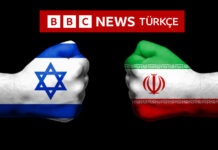After a meeting of Ret. Gen. Joseph Ralston, the United States’ special envoy on countering the PKK (a title that the Turkish press has transformed into ‘special envoy for counter-terrorism’) held on January 29th with Masud Barzani, the president of the Kurdistan Regional Government, and vice president Kosrat Rasul, it is reported that Turkey has been given a green light from the U.S to attack PKK positions on the Kandil Mountains. The same sources told that the military invasion will start in the beginning of April 2007. This was critical news that both the Turkish establishment and a part of the public have been long anticipating for.
Will it bring relief as expected? Or will the operations now expected to start get rid of the gangrene that is referred to as the ‘Kurdish problem’? That is to be seen. However, both the Americans and the Turkish establishment must be quite relieved to have convinced the Kurdish leaders of Iraq to lit the green light for a Turkish military operation to the Kandil Mountain where the PKK contingency camps out and conducts armed forays into Turkish soil.
The consent of the Kurdish leadership has been wrought out by the Americans after a convoluted process of nearly half a year. The American command in Iraq did not want to loose the support of their only ally in this hostile country. And the Iraqi Kurdish leadership wanted to keep the PKK in their territory as a trump card against the belligerent attitude of the Turkish government and the military to even the establishment of an autonomous Kurdish administration. As the prospects of a civil war and eventual dissolution of Iraq came to sight the worries of the Turkish establishment concerning the evolution of a Kurdish autonomy into a full fledged independent Kurdish state grew stronger. As Turkish worries mounted up so did its antagonistic rhetoric against Iraqi Kurdish leaders, who in turned callous to PKK presence on their territory.
In the past both the Barzani and Talabani pehmerges fought alongside or provided logistic support for Turkish forces chasing PKK militia in Iraqi soil. After all the PKK was a Turkish (or better Turkey’s) phenomenon and its armed existence was also a threat to the authority of the Iraqi Kurdish leadership whom did not want to share their newly won sovereignty from the Saddam government in the 1990s.
Today’s result must be due to a mixture of Turkish military’s constant pressure on the U.S. authorities and complaint of an ally’s unfaithfulness in dire times. The other factor must definitely be the soft approach of the Turkish government concerning talks with the Iraqi Kurdish leadership and wining their hearts.
Now that the green light is in sight what are te chances of success of expected military operations to quell the PKK and end the ‘Kurdish problem’ once and for all? However, before saying anything on the subject let us look at the results of a non-scientific (not based on random sampling) poll taken by a newspaper (Hurriyet) last week trough electronic media.
To the question put as “Should the Turkish army enter Iraq?” 302,135 people responded. 34% of these said “Yes”. 58.8% said, “No, it would be hazardous.” Another 7.2% wanted a diplomatic solution. This figure swells those who do not want a military option to 76%. This is not a reliable survey but it gives an impression of popular leanings especially when it is conducted by a daily that is known by its nationalistic credentials. Yet the Turkish establishment wants to go ahead with the military option. Why?
First of all, the Turkish ruling elite so far could abandon the basic tenets of the nationalist ethos that any group other than Turkish is a potential danger to the national unity of Turkey, So Kurds in general are suspect of separatist inclinations. Of course the PKK’s terror campaign helps to keep this suspicion fresh and warm for all times. However, the thought of severing the tie of the millions of Kurdish citizens of Turkey with this armed organization never occurred to the Turkish ruling elite.
The security concept of Turkey has always evaded the human nature of this concept. The harsher methods realized by armed forces has been on the forefront whereas human measure to win the people have been neglected. Hence the problem of any cultural or political demand, no matter how reasonable, has been repressed on the grounds of security, further widening the boundaries of opposition to the system.
The trajectory of opposition, slowly evolving into resistance and from resistance to armed conflict has not been fully grasped. A problem that could be solved at the social-economic-political level (peacefully) has evolved into armed confrontation further hiding the true nature of the issue, That is why the Kurdish problem and violence is intertwined making both indiscernible.
The U.S. infatuation to deal with terrorism through military means has reinforced the traditional Turkish attitude and has no other option than organizing cross-border operations as if the root cause of the problem is in Iraq.
Let it be. The impending operations will be the litmus test of the correctness of the method employed so far. Yet there are a few questions to be answered.
1- There are about 1000-1500 PKK militant in Turkey and 3500-4000 in camps/caves on the Kandil Mountain in north Iraq. How come those in Turkey is not eradicated? If so, will those hiding in the mountain well entrenched in the caves and labyrinths of tunnels they have built in previous years be smoked out?
2- Now hat the word is out that Turkey will attack them, will they sit there like ducks or disperse into safer locations, given the leniency of the local Kurdish administration and the American command that see the possibility of using this organization’s influence on the Kurdish opposition movements in Syria and Iraq, the notorious members of the axis of evil?
3- The Kandil mountain is not that close to Turkey. An infantry operation I out of question for logistical reasons ad the possible hostility of local Kurds. Hence an air and helicopter attack must be planned. How effective would that be given the territorial affinity of the militia in the area? If this is the case, hen is this whole scheme a steam letting operation to ease the mounting political pressure on the Turkish government and the military? Even that may ease the increasing radicalizing nationalist surge in Turkey and increase AKP’s electoral chances, jus as helping the military to ease its frustration vis a vis American intransigence that hampered relations between Turkey and the USA to a great extent.
4- What if local Kurds are hurt or scenarios to that effect are hatched that may brings the Kurdish armed forces that have improved their capabilities in the past decade thanks to their American patrons with the Turkish armed forces? From what we read from the pres the cross border operation will be carried out by approximately 40,000 men. According to international new sources Kurdish brigades have been sent to take part in the new Baghdad security plan. “Kurdish brigades are well-trained to fight inside cities and neighbourhoods, and they will contribute vigorously in cleansing Baghdad’s suburbs of armed men and outlaws,” (Gulf News). Amer Al Hussaini, a prominent figure in the Shiite Sadr group, told Gulf News: “The Kurdish Peshmergas forces which most of the Iraqi army brigades are formed from, stationed in Dohuk, Arbil and Suleiymaniya, amount to 80,000. This might rise to 120,000 because of the escalation of security threats in Baghdad and also Turkey’s threats to the federal Kurdistan region regarding ownership of Kirkuk”.
Given this assessment, could there be an ‘accident’ that may turn the whole affair into a local bloody entanglement?
These are necessary questions that must be asked before an operation that will yield more psychological results than actual by its planners. But there are two practical initiatives that must be considered if Turkey must really rid itself of this problem that has reached the level of a gangrene poisoning the country.
1- It must distinguish between the Kurdish problem that will and must be settled within Turkey and political violence perpetrated by the PKK on the excuse that the Kurdish problem is not yet solved.
2- Despite the existing suspicions ad tensions, Turkey and Iraqi Kurds need each other. A Kurdish entity in north Iraq could become a buffer between Turkey and the turmoil to the south, while Turkey could become the business partner and protector of a Kurdish entity that, though still technically part of Iraq, is effectively cut loose from a Baghdad f a united Iraq becomes an impossibility.
To realize this Turkey must remember that not foes but the relatives of its citizens are living across its southern borders and the Iraqi Kurds must convince the suspicious Turks that their existence is more of a boon for Turkey in all respects than plotting to provoke their brethren in Turkey to created a bon fire that may consume them as well during its extinguishing.










